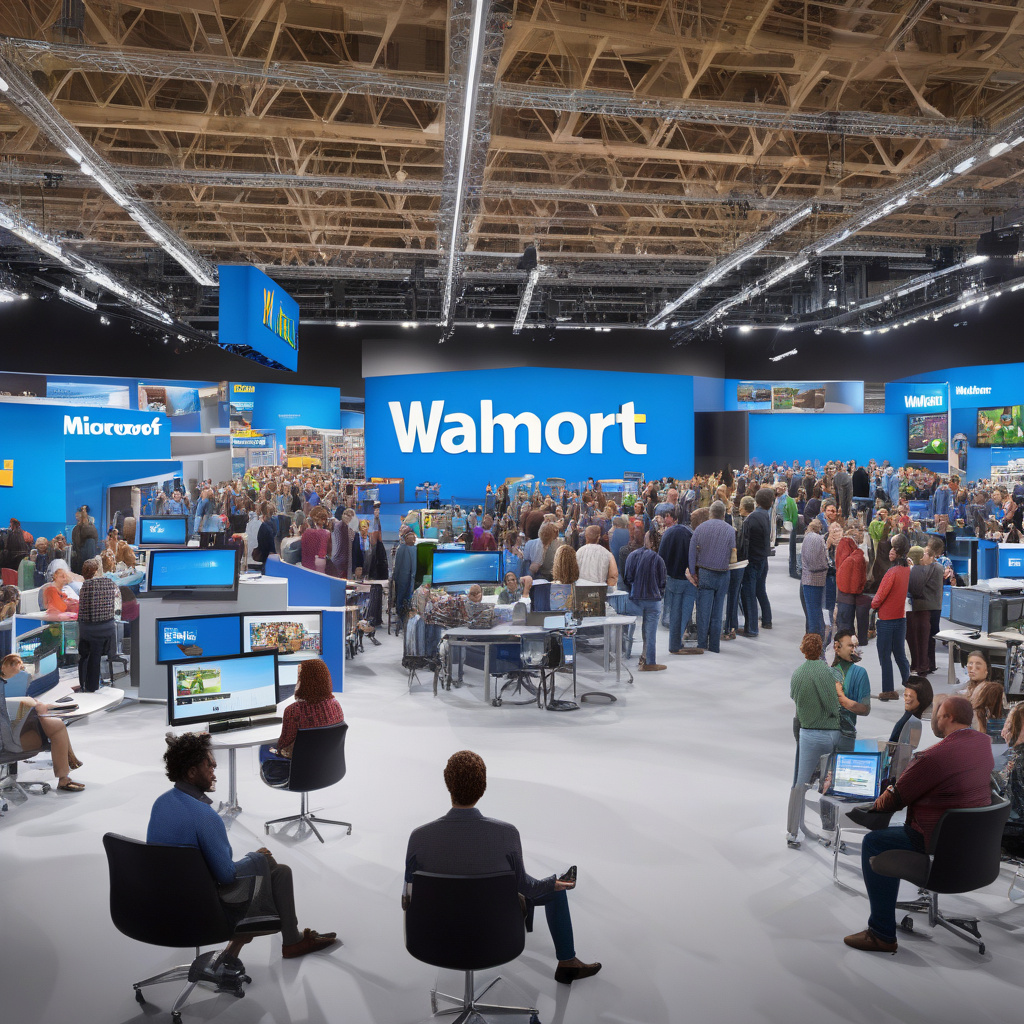Walmart’s AI Details Leaked During Microsoft Build Conference
The recent Microsoft Build conference, a prominent event in the tech industry, became the stage for an unexpected intersection of technology and activism. While developers and tech enthusiasts gathered to explore the latest in artificial intelligence, cloud computing, and software development, the spotlight shifted when protesters from the No Azure for Apartheid group interrupted a key session on best security practices. The disruption coincided with the leakage of critical details regarding Walmart’s artificial intelligence initiatives.
Walmart, the retail giant known for its vast supply chain network and commitment to customer experience, has been making strides in integrating AI technologies into its operations. The leaked information from the Microsoft Build conference shed light on new AI tools being developed by Walmart, aimed at optimizing inventory management, enhancing customer service, and improving overall operational efficiency. These advancements are particularly significant as retailers navigate an increasingly competitive landscape driven by the demands of e-commerce and changing consumer expectations.
According to sources close to the development, Walmart’s AI initiatives focus on predictive analytics that can forecast customer behavior and preferences. This technology allows Walmart to tailor its inventory and marketing efforts, ensuring that products are available when and where customers want them. For instance, if data indicates a spike in demand for a particular product during a specific season, Walmart can adjust its inventory levels accordingly, reducing waste and improving sales.
Furthermore, the leaked details suggest that Walmart is also investing in AI-driven customer service solutions. With the integration of chatbots and virtual assistants, customers can receive immediate assistance for their inquiries, improving satisfaction and reducing wait times. A report by Gartner indicates that by 2025, 75% of customer interactions will be powered by AI, underscoring the importance of such technological investments for retailers like Walmart.
However, the protest by the No Azure for Apartheid group during the conference raised questions about the ethical implications of technology partnerships. The group is vocal about concerns regarding Microsoft’s Azure cloud services being utilized in ways that support oppressive regimes, particularly in contexts where human rights may be compromised. Their interruption during a session dedicated to security practices highlights a growing awareness in the tech community about the ethical responsibilities that come with technological advancements.
The juxtaposition of Walmart’s AI developments and the activists’ protests illustrates a broader narrative within the retail and technology sectors. As companies increasingly rely on AI and cloud computing to enhance their operations, they must also navigate the complexities of social responsibility and ethical governance. The potential for AI to improve efficiency and customer satisfaction is significant, but it is equally important for businesses to consider the societal impact of their technological partnerships.
Moreover, the incident at the Microsoft Build conference serves as a reminder that the advancements in artificial intelligence are not merely technical upgrades; they come with responsibilities that must be acknowledged. Businesses must ensure that their use of technology aligns with ethical standards and contributes positively to society. This balance is essential for maintaining customer trust and brand integrity in an era where consumers are more aware of corporate practices.
As Walmart continues to innovate with AI, the company must keep these ethical considerations at the forefront. Engaging with stakeholders, including customers, employees, and advocacy groups, can provide valuable insights into how AI technologies can be developed and implemented responsibly. By doing so, Walmart can not only enhance its operational capabilities but also reinforce its commitment to social responsibility.
In conclusion, the leakage of Walmart’s AI details during the Microsoft Build conference, coupled with the protests by the No Azure for Apartheid group, highlights the dual narratives of technological advancement and ethical responsibility. As Walmart and other retailers integrate AI into their operations, they must remain vigilant about the implications of their technology choices. The future of retail is undoubtedly intertwined with AI, but it is crucial for companies to ensure that their innovations are not only effective but also ethically sound.
#WalmartAI, #MicrosoftBuild, #RetailInnovation, #EthicalTech, #CustomerExperience
